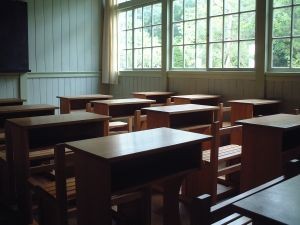According to a recent feature from ABC News 10, two full-time employees of University of California Davis and five students have decided to blow the whistle on what they consider to be a problem dating back several years. These seven individuals have filed whistleblower complaints with UC Berkeley.
 All of these whistleblowers work in the technology department, where they are responsible for bringing audiovisual equipment to various classrooms and offices when it is needed. There are four other employees working in their department. The focus of their complaints revolves around the fact that they are required to drill holes in walls and other structures in order to install equipment.
All of these whistleblowers work in the technology department, where they are responsible for bringing audiovisual equipment to various classrooms and offices when it is needed. There are four other employees working in their department. The focus of their complaints revolves around the fact that they are required to drill holes in walls and other structures in order to install equipment.
They claim managers are aware there is a high probability of asbestos being present in the locations where they are telling the employees to drill, and they are choosing not have the structures tested for the deadly microscopic fibers. The whistleblowers are concerned workers and students are being exposed to asbestos fibers. They have also claimed the drilling is being performed while heating and air conditioning systems are up and running, which increases the risk of asbestos exposure substantially.
In the whistleblowing complaints, claimants assert that the university is violating state and federal law, because any structures built before 1980 are to be treated as if they contain asbestos, because there is a high likelihood that they do. These particular buildings were constructed in the 1960s.
As our Boston mesothelioma lawyers can explain, asbestos was heavily used during the 1960s, because it was a cheap and effective naturally occurring substance that has the ability to withstand heat, fire, caustic chemicals, and electricity. Companies producing asbestos at this time were completely aware of the toxic nature of the substance, and this point concerned much of the general public, as well. These companies were taking extraordinary efforts to convince the public asbestos was safe, or that their asbestos-laden products were some kind of safe alternative to asbestos, even though this was fraud, and they knew it. It is for these reasons that plaintiffs are asking juries to impose punitive damages in addition to compensatory damages.
As the name implies, punitive damages are designed to punish a defendant for engaging in conduct that demonstrates a willful and wanton disregard for the safety of others. This is conduct that is far more serious than mere negligence. For this reason, punitive damages can far exceed actual loss incurred by plaintiff.
In response to this complaint, the school has released a statement that it is in the process of asbestos abatement. They reported tests of air quality showed no risk of asbestos exposure to students, staff, and faculty, and the school denies violating any safety regulations.
However, a news reporter working on the article claimed a station crew went to view the facility for themselves and saw open double doors where asbestos abatement was supposed to be underway, without the area being secured and tented after wall panels had been removed.
If you or a loved one is diagnosed with mesothelioma in Boston, call for a free and confidential appointment at (617) 777-7777.
Additional resources:
Two whistleblowers filed complaints that state asbestos is present in a building on the UC Davis campus and that an unknown number of students may have been exposed, Aug. 17, 2015, News 10, by Thom Jensen
More Blog Entries:
Mesothelioma Lawsuits for Shipyard Workers, July 30, 2014, Boston Mesothelioma Lawyers Blog
 Mesothelioma Lawyers Blog
Mesothelioma Lawyers Blog

